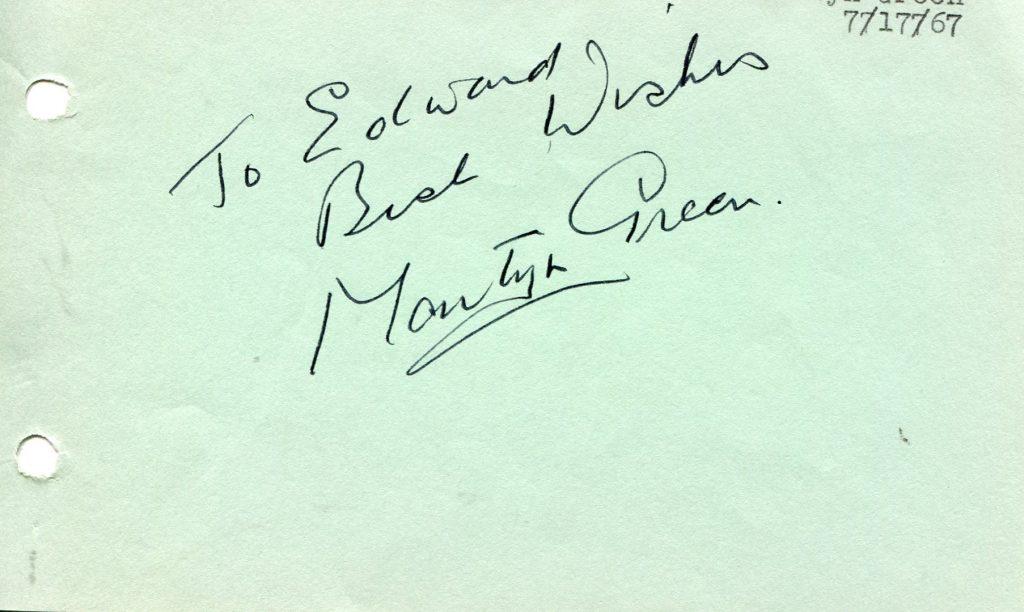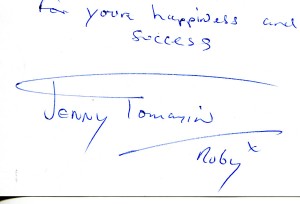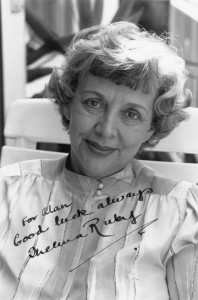
Brittish Actors
Collection of Classic Brittish Actors
Hilda Plowright
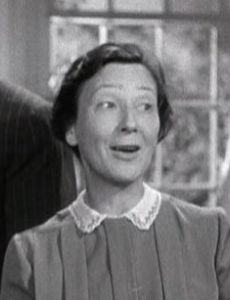
Hilda Plowright was born on November 29, 1890 in Swaffham, Norfolk, England. She was an actress, known for Summer Magic (1963), 36 Hours (1965) and Partners of the Plains(1938). She died on October 9, 1973 in San Diego, California, USA.
John Lyons
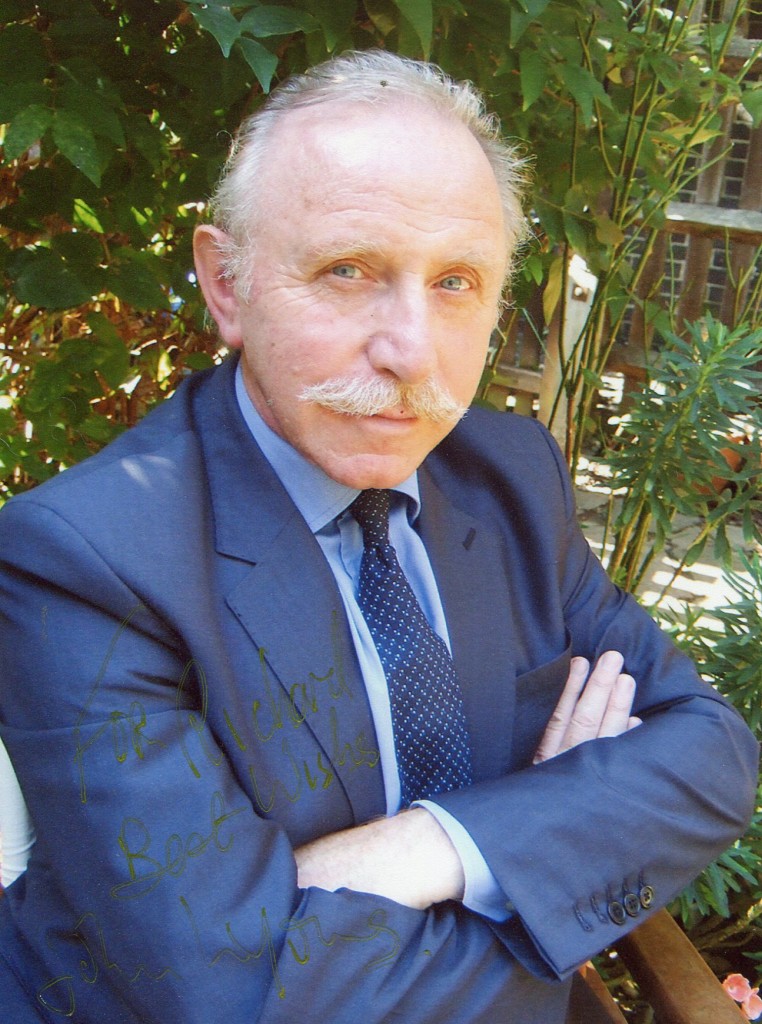
John Lyons was born on September 14, 1943 in London, England. He is an actor, known for A Touch of Frost (1992), Blues Brothers 2000 (1998) and Action Jackson (1988)
Jenny Tomasin
%202.jpg)
“Independent” obituary:
The role of Ruby Finch, the dim-witted, put-upon scullery maid in Upstairs, Downstairs forever dreaming of running away with Rudolph Valentino, brought Jenny Tomasin fame worldwide. The familiar cry of “Oh, Ruby!” from the Bellamy household’s cook, Mrs Bridges, in response to the accident-prone servant’s clumsiness, was perhaps the closest the saga came to having a catchphrase.
Tomasin joined the programme for just one episode in its second series, in 1972, but her portrayal of the downtrodden Ruby was so admired that she was kept on until Upstairs, Downstairs ended three years later. She was seen “downstairs” alongside others including Angela Baddeley as the grumpy but warm-hearted Mrs Bridges, George Jackson as the dour butler Hudson, Jean Marsh as the pivotal housemaid Rose and Pauline Collins as the day-dreaming parlour maid Sarah in the drama set at 165 Eaton Place, London, against a background of events from the Edwardian era and First World War to the General Strike and Wall Street Crash. In typical fashion, Ruby once shocked her fellow servants by announcing that she was leaving for a job in a munitions factory, only for it to be blown up with her inside. She took the long walk back to Belgravia, her face blackened, and was reinstated.
The programme was Britain’s most successful period drama of the 1970s, watched by 300 million people in 50 countries, including the US, where it won seven Emmys. When it ended, Tomasin felt a big hole had been left in her life and compared it to bereavement. Plans for Ruby to join Hudson and Mrs Bridges in a sequel, running a seaside boarding-house, were abandoned following Baddeley’s death.
However, Ruby was a double-edged sword. The character was popular but frequently described as “TV’s ugly duckling” and, Tomasin believed, left her typecast as maids, restricting her future career, while “upstairs” stars such as Simon Williams and Lesley-Anne Down saw their careers soar.
“I had to wear these drab outfits and no make-up,” she recalled in the 2002 television documentary After Upstairs, Downstairs. “There was one particular incident when I was out with my boyfriend for a meal. I was feeling sexy and attractive, and suddenly somebody yelled out, ‘Oh, look, there’s Ruby!’ I looked at my boyfriend and said, ‘I don’t want to stay here.’ It just felt awful.”
Born in Leeds in 1936, Tomasin had childhood ambitions to act or write. Despite her parents’ objections, she broke into acting and appeared on stage until she made her screen début in 1972 as a Young Conservative whose parents try to marry her off to the fraudulent Australian of the title (Barry Crocker) in The Adventures of Barry McKenzie, a film written by Barry Humphries (who played Aunt Edna Everage) and the director Bruce Beresford.
Before she finished her run as Ruby, Tomasin took the carbon-copy role of a waitress, Florence Baker, in the motel-set soap opera Crossroads, which she played on and off from 1974-79. There were also one-off appearances in The Dick Emery Show (1976), The Onedin Line (1977) and the sitcom That’s My Boy (1985), as well as the small part of Mrs Simmons in the little-seen film Mister Quilp (1975), based on The Old Curiosity Shop. Tomasin also acted one of the child mill workers in later episodes of Midnight is a Place (1977-78).
After she played Naomi Tolly, whose farmer father died in a tractor accident, in Emmerdale Farm (1980-81) and Tasambeker, “ex-ter-min-ated” by the Time Lord’s nemeses in the 1985 Doctor Who story “Revelation of the Daleks”, Tomasin’s appearances became rarer. She took the role of a traffic warden in the 1990 film Just Ask for Diamond and was typecast as a maidservant in a BBC adaptation of Martin Chuzzlewit (1994) and the cook in Beeban Kidron’s television film of Cinderella (2000).
On stage and back to type, Tomasin played a parlour maid in a West End production of Man and Superman (Theatre Royal, Haymarket, 1982), starring Peter O’Toole, with the cast reprising their performances in a television film version the same year. She was also in pantomimes and national tours of Blithe Spirit (1988-89), as Edith, the maid, Lettice and Lovage (1990-91) and The Marquise (2004), in which she acted Kate O’Mara’s devoted maid.
Tomasin believed her television career might be experiencing a revival when she returned to Emmerdale (as the serial was retitled in 1989) in the role of Noreen Bell (2005-06), a cantankerous, palm-reading, wig-wearing pensioner whose garden fence was painted by Val Lambert as part of a community service order. Noreen became friends with Val but died in a gas explosion while looking round a show home.
It was Tomasin’s last screen role, but the character’s legacy lives on. The money bequeathed by Noreen to Val enabled her to buy a half-share in The Woolpack pub, where last orders are called with the Noreen Bell bell. However, Tomasin – who never married – always remained optimistic that more work would come along. As she said in 2002: “I’ve been through such hard times, but I can always bounce back again. I still believe great things are just ahead.”
Anthony Hayward
Jenny Tomasin, actress: born Leeds 30 November 1936; died London c. 12 January 2012.
Thelma Ruby
IMDB entry:
Thelma Ruby was born on March 23, 1925 in Leeds, Yorkshire, England as Thelma Wigoder. She is an actress, known for Room at the Top (1959), The Last of the Blonde Bombshells (2000) and The Man Who Liked Funerals (1959).
Brian Hibbard

Brian Hibbard was the lead singer with the brilliant 1980’s pop group ‘The Flying Pickets’ who had a Christmas Number One Hit with “Only You” in 1983. They made beautiful cover versions of “I Heard it Trhough the Grapevine”, “Buffalo Soldier” and “Ziggy Stardust” amongmany others. Her also acted and appeared in “Coronation Street” as mechanic ‘Doug Murray’ who had a romance with Deirdre Barlow. He also featured in “Emmerdale” and in the film “Rancid Aluminum”. He was born in 1946 in Ebbw Vale in South Wales and died in 2012.
Anthony Hayward’s “Guardian” obituary:
Brian Hibbard, who has died of prostate cancer aged 65, first found fame as a member of the Flying Pickets, a group of actors who left the socialist playwright John McGrath‘s 7:84 theatre group to woo audiences through their a cappella singing. They topped the pop charts in 1983 with a cover version of Only You, trumping Yazoo, the duo of Alison Moyet and Vince Clarke, who had reached No 2 with their original recording. This Christmas No 1 single and the group’s flamboyant look – gaudy suits, large hats and Hibbard’s massive sideburns – led to brief stardom for the Flying Pickets, a name coined because some of them had supported the miners during their strikes of 1972 and 1974. They hit the Top 10 again with another cover, When You’re Young and in Love (1984), but only scraped into the lower reaches of the chart with their third single, the Eurythmics song Who’s That Girl (1984).
Stardom coincided with the 1984-85 miners’ strike, so the group staged benefit concerts and picketed pits, coke plants and power stations, leading one record chain to refuse to stock their albums. With the novelty act wearing thin, Hibbard returned to acting full-time and carved out a screen career in which he was rarely out of work.
His first significant role was as the slovenly, unemployed Chunky – reprising the 1950s haircut and sideburns, along with leather jacket and skull-and-crossbones motif on his T-shirt – in Making Out (1989-91), the first of Debbie Horsfield’s comedy-dramas centred on groups of women. Chunky was married to Margi Clarke’s fiery Queenie, ringleader of the employees facing workplace and personal crises at an electronics factory outside Manchester.
Hibbard then enjoyed a run in Coronation Street as Doug Murray (1992-93), a mechanic at the garage – then owned by Mike Baldwin – who had a relationship with Deirdre Barlow and stole his boss’s beloved Jaguar, swapped it for a Mercedes and did a moonlight flit to Germany.
Eventually settling down to regular work as a character actor, Hibbard flitted between productions, most noticeably in his native Wales, where he is particularly remembered as Dai Reese, the self-styled karaoke king, in the cult film Twin Town (1997), and as another layabout, the racist Tony in Little White Lies (2006), which won him a Bafta Cymru best actor award.
Hibbard, the son of a steelworker, was born in Monmouthshire and brought up in Ebbw Vale. He grew his trademark sideburns during the early days of rock’n’roll, and longed to see the world beyond his valley. On leaving school, he flitted between jobs as a steelworker, bartender and chimney sweep, before training as a teacher. Motivated by the political uprisings of the late 1960s, he then began acting with companies whose productions addressed political issues of the time.
In 1980, Hibbard and his fellow actors in a 7:84 production of One Big Blow, John Burrows’s play about the daily hazards endured by miners and the escape they found by playing in colliery brass bands, mimicked the sounds of the instruments because they could not afford to hire musicians. Soon, as the Flying Pickets, they were being asked to sing a cappella at events, appearing in cabaret and at festivals, and were offered a record deal.
After leaving the group in 1986, Hibbard and his fellow Flying Picket Red Stripe (originally named David Gittins) teamed up as Brian & Stripe, but their only single, the Yazoo song Mr Blue, failed to chart.
Concentrating on acting, Hibbard appeared as the alien bounty hunter Keillor in the Doctor Who story Delta and the Bannermen (1987) and was cast in both comedies and dramas, from Birds of a Feather (1991) and Murder Most Horrid (1994) to Minder (1993) and Dalziel and Pascoe (1999). He returned to soap opera briefly as the ageing Romeo Bobby-John Downes in Emmerdale (2003, 2006) and the former social worker Henry Mason in EastEnders (2011), as well as rough diamond Johnny Mac in the Welsh serial Pobol y Cwm (2005-2008). For more than 20 years, he also relished playing pantomime villains on stage.
Hibbard is survived by his wife, the actor Caroline Bunce, whom he married in 1996, and their three children, Lilly, Cai and Hafwen.
• Brian Lewis Hibbard, actor and singer, born 25 November 1946; died 17 June 2012
The above “Guardian” obituary can also be accessed online here.





John Altman

John Altman was born in 1952 in Reading , Berkshire. He is best known for his performance as ‘Nasty Nick Cotton’ in “Eastenders”.
Article from “Walford Gazette”:
“Reg Cox, Eddie Royle, and accidentally my son Ashley [a teenager who hasn’t yet shown up on U.S. public TV screens]. And don’t forget I tried to poison [to death] my dear old Ma [the long-suffering Dot Cotton]. Not too bad, eh?”
In person, Altman turns out to be nothing like Nick and looks great for his 51 years. He usually doesn’t reveal his age to the U.K. press, he confides. Nick’s tattoos, he smiles, were make-up, as were the needle marks during Nick’s heroin-shooting days.
Altman visited New York in late June on a holiday to the States with his 16-year-old daughter Roseanna. Staying at the Long Island home of Paul Bennett, an expatriate friend he’s known since schooldays, Altman paid a visit to WLIW to tape a commercial spot to help them promote on-air the then impending EastEnders switch to Saturday nights. WLIW’s Matthew Digirolamo was good enough to tip off the Walford Gazette of Altman’s local presence and how he might be up for an interview.
“I feel quite lucky to have played Nick Cotton for so many years,” says Altman. “Some actors never get anywhere. And every time I’ve been on EastEnders, they have quite meaty storylines for me. From an acting point of view, it’s been a good experience. It’s a bit of a cross to bear sometimes though—him being so nasty. When they’re casting, I tend to get overlooked for parts like the warm, loving father—which as you can see I am in real life.
“It’s [playing Nick] a double-edged sword really because I’ve been labelled ‘Nick Cotton’ for the rest of my life. But it’s been great because I’ve been in and out [of EastEnders] the last couple of years. And in the theatre I have been able to play Billy Flynn in an U.K.-touring show of Chicago.”
A BBC reviewer on a Norwich performance last November wrote: “Altman certainly looks the part, and his performance as the silver-tongued courtroom attorney draws on his recent TV experience as Dot Cotton’s smooth-talking son.”
As far as coming back again as Nick, Altman says, “They’ve left it open.” They being the various creative teams that have run EastEnders over the past 18 years. “I think they keep him like an ace card up their sleeve. When it gets a bit quiet, [time to bring back] Nick Cotton.”
Indeed, Nick has probably returned to the Square more than any other character, not to mention that he was there from the very first episode in February 1985. I tell him how EastEnders fans often vividly remember the show’s first-ever scene of Den Watts kicking in Reg Cox’s door; I remember better the last part of that episode with Den throwing Nick out of the Vic after getting into a fight with Ali. “And Nick’s fist comes through the window,” Altman adds, finishing my thought.
Asked whether he thought that the EastEnders creative teams ever went too far with his evilness, such as poisoning Dot, Altman responds, “Not really. I try to find anything really nice about Nick.” He thinks a moment. “Well, he gave his leather jacket to his son Ashley. He did love his son, you know? And when his son dies, he was actually grief-stricken looking over at the coffin. I don’t know if you seen that episode yet?”
I tell him no, and explain the time warp Americans who appreciate EastEnders find themselves in and how I didn’t yet get BBC America when that storyline hit.
Even though Nick was responsible for Ashley’s death, explains Altman, “Nick’s warped mind still blames it on Mark Fowler. I don’t know what else Nick could do really, other than go out like James Cagney. Personally I wouldn’t want to see him as a nice guy. I don’t think the viewers would want to either. He’s 99 percent rotten Cotton, yeah.”
On the Nick Cotton scale, Altman comments that EastEnders’ Trevor was “a good bad guy.”
Altman’s acting credits also include small parts in the Star Wars sequel The Empire Strikes Back and the 1979 film Quadrophenia, based on Pete Townshend’s 1973 concept album by The Who.
For Jedi, “I was only working on it for a couple of days. It’s easy to miss me, but I did work on it. Quadrophenia was [an acting] learning curve for me. That’s a cult movie in the U.K.”
I point out, “Here too.” Another major role outside of EastEnders for Altman was playing George Harrison in a 1979 TV movie called Birth of the Beatles. A musician in real life, Altman felt at ease playing Harrison, whom he closely resembles physically.
Asked whether he ever met Harrison, he regrets that he never did, but like fellow EastEnders alum Carol Harrison (who played Tiffany and Simon’s flashy mum, Walford Gazette, No. 36), Ringo Starr once recognised ‘Nick Cotton’ in public, remembers Altman.
Of what’s on U.S. telly, Altman comments that “24 is damn good television; there’s so much going on at the same time.”
He mentions playing one of the leads in a play called Bouncers, a satire about nightclub life that’s booked for major U.K. cities through January.
Bouncers, written by respected playwright John Godber, was first performed in 1977 at the Edinburgh Fringe Festival and recently enjoyed a successful run in the West End’s Whitehall Theatre.
The production of the play also stars Terry Duckworth, an actor in EastEnders’ rival Coronation Street, in an obvious ploy by the producers to bring the punters to the theatre.
The four leads in Bouncers play a total of 47 parts—from lager louts to handbag-clutching girls, reminiscent of the acting trio who comprise the BBC’s bizarre series The League of Gentlemen (see page 11).
Altman described his Bouncers characters to the British newspaper The Independent in a recent interview: “I switch constantly between three characters: Eric, Maureen and Baz. I was told it would stretch me! There is Lucky Eric, a bouncer, so-called because he always finds a fiver on the dance floor. Maureen, a bit busty, but not a bag, likes a drink and a bit of a laugh. And a young yob called Baz, fit for a fight Friday night—get down there, have a skinful, maybe a Chinese chicken-in-a- basket, and try to pull a bird. The music will change—different disco numbers—one minute I’m a woman, then suddenly I’m a man. It’s quite bizarre.”
Following Bouncers, Altman tells the Walford Gazette, he’s set to appear in a in pantomime production of Peter Pan, which he also did last holiday season. “And after that, who knows?”
With Dirty Den coming back, I mention that there’s probably an opportunity to bring back Nick yet one more time given the history (I mention the gripping prison scenes) and the fact that there’s no love lost between the two characters. “Yes, that was when he confessed to murdering Reg Cox, thinking that Dirty Den would be impressed. I haven’t heard anything [about coming back]. And I’m pretty booked doing plays.”
The above “Walford Gazette” can also be accessed online here.
Richard Coyle
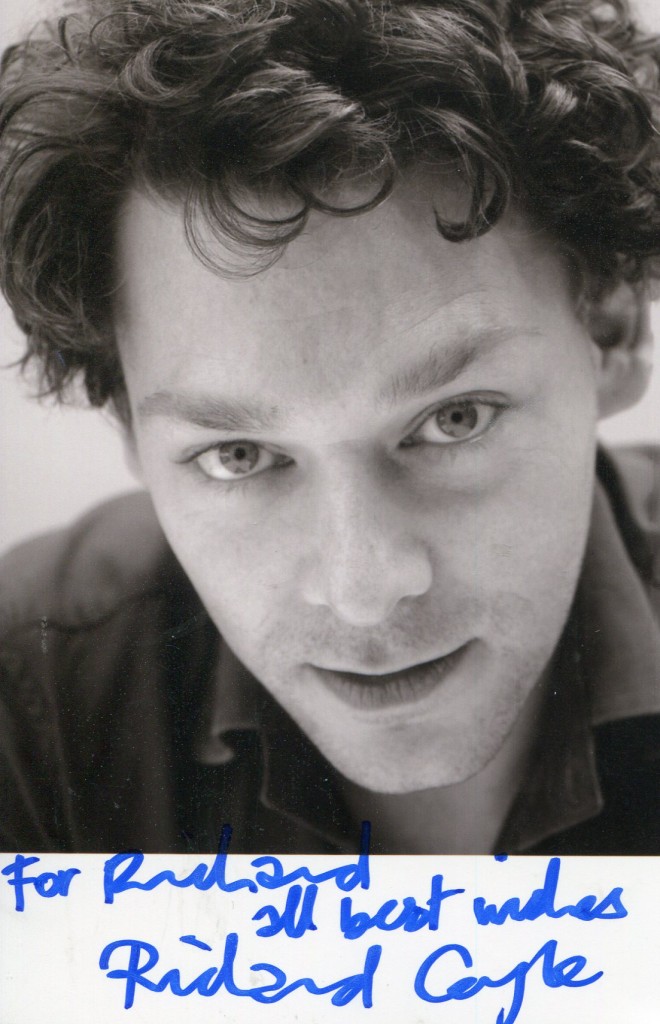
Richard Coyle was born in 1972 in Sheffield to Irish parents. In 1998 he was featured with Patricia Routledge in “Hetty Wainthorp Investigates”. His movies include “Human Traffic”, “Young Blades” and “Happy Now”.
